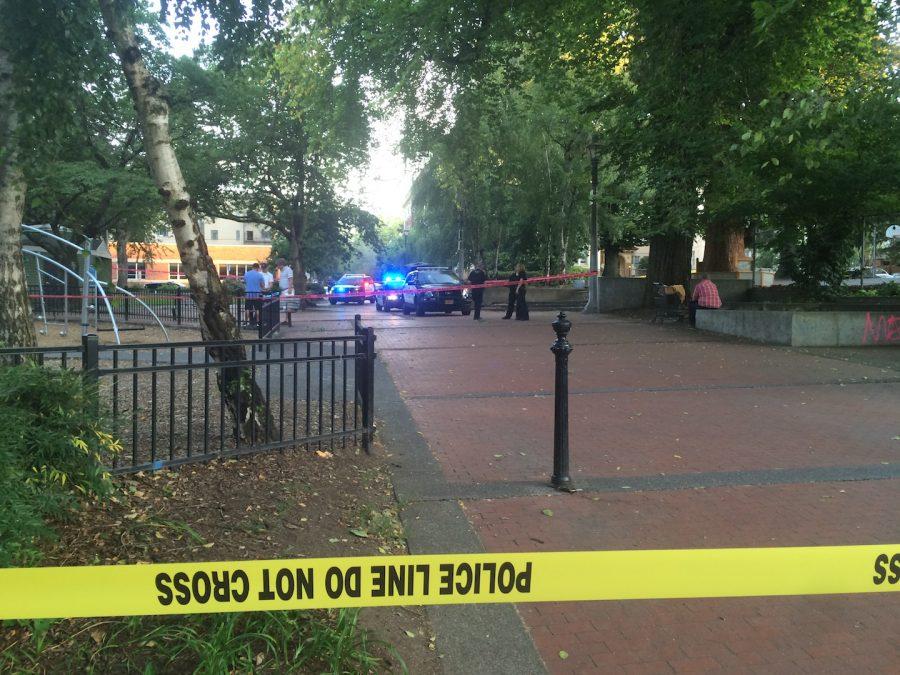Police shootings have ripple effect on communities of color
Portland Police investigate a stabbing at Couch Park on Aug 26.
A typical summer for a Lincoln student is filled with vacations, sunny beaches and family visits. But for some who lived elsewhere, this summer brought death and more questions about police treatment of African Americans.
Two of the more notorious and well-publicized cases involved Alton Sterling of Baton Rouge, Louisiana, and Philando Castile of St. Paul, Minnesota. Both were among unarmed black men who have died at the hands of police during the past few months.
Sterling was shot several times at point-blank range by police while on the ground after a struggle with officers outside a convenience store. That happened despite the fact that some witnesses said he had been trying to cooperate with them.
Castile, who had been pulled over during a traffic stop, was shot while in the front seat of his car, despite the fact that he was apparently trying to comply with the officer’s instructions. His girlfriend and her 4-year-old daughter were with him in the car.
Like some past instances of police brutality, these two attacks were caught on tape.
Given these and other cases of unarmed black men being killed by police, what is a young black man to do when even following orders still gets them shot, like Castile.
I asked young males of color at Lincoln what they do to prepare for contacts with police.
Akili Kelekele, current leader of Brothers of Color, a student-led organization at Lincoln, says that “groups like Brothers of Color help prevent things like police brutality because we talk about race issues and how to cope with the problems.”
However Black Student Union president Carelle Namegabe thinks that student training is only part of the solution.
“I think that the problem is that not enough police officers are properly trained on how to interact with people without letting the situation escalate to violence,” because, she said, “What many people don’t know is that as a person of color…you are taught at an early age how to interact with the police by your parents.”
According to Namegabe, in a world where unarmed black teens are gunned down, and their killers sometimes left to go free, the solution to end the violence caused by a long history of systemic racism is, “mutual respect on both sides.”
The first step to establishing this relationship between cops and civilians is to create integrated communities and trusting relationships with authority. This can be done through clubs like Brothers of Color and BSU.
“I hope that through Brothers of Color I can spread awareness [about the] institutional racism in our society that causes things like police brutality,” says Kelekele. One way they will try to do that is hosting a black police officer at Lincoln, hopefully next month.
Clubs are only one step in a long process of establishing integrated communities and building better relationships between police and people of color: A long process that Lincoln and its active minority community are helping to move forward one step at a time.

